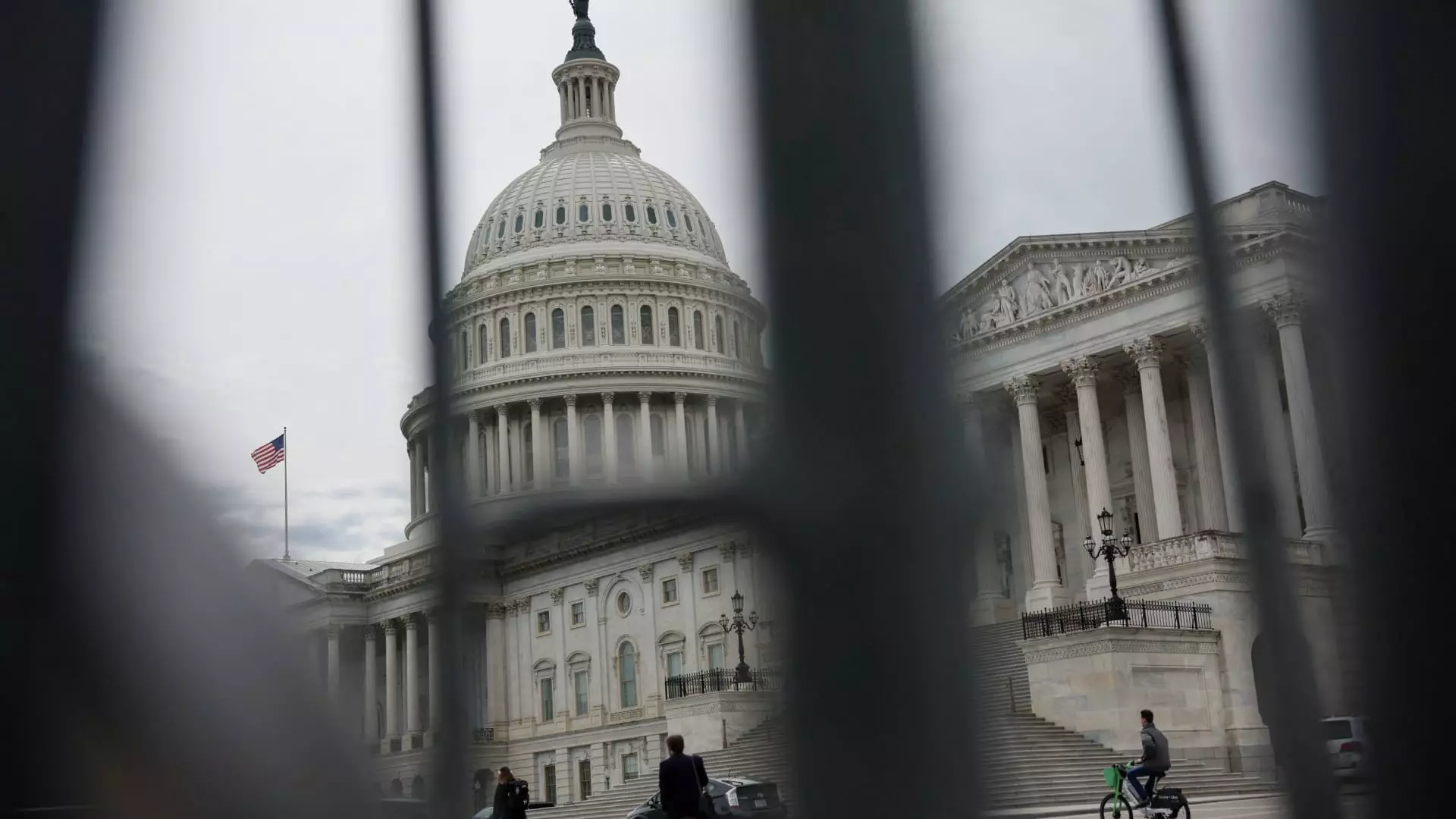In a move that is as audacious as it is alarming, the U.S. Senate has given the green light to a Republican budget scheme that aims to stretch President Donald Trump’s 2017 tax cuts into oblivion. The approval, secured during an all-nighter in Congress, is not simply a legislative formality but a quintessential display of political gamesmanship. This budget blueprint threatens to sow even deeper seeds of economic disparity, proposing to extend tax cuts worth trillions while simultaneously planning to cut spending for critical social services. Such arbitrary financial engineering raises serious concerns about the long-term sustainability of the country’s economy, as non-partisan experts project that the plan could inflate the national debt by a staggering $5.7 trillion over the next decade.
Republicans argue that the real cost is only $1.5 trillion, a number that conveniently ignores the impending expiration of tax cuts unless new legislation affirms their continuance. By utilizing a fast-track maneuver to sidestep the Senate filibuster, Republicans anticipate pushing through their agenda without any input from Democratic representatives who generally stand for more equitable fiscal policies. This undemocratic approach to governance seems to suggest that the voices of ordinary Americans are being drowned out in favor of a select elite.
The Debt Ceiling Dilemma
Coupled with this reckless budget plan is a bid to raise the federal government’s debt ceiling by $5 trillion. This proposal is a ticking time bomb; Congress must act by summer or risk defaulting on an astronomical $36.6 trillion in existing debt. The irony is palpable—while Republicans are pandering to populist sentiments by promising economic growth through tax cuts, they are simultaneously on a collision course with the harsh realities of financial mismanagement. To offset the deficit that these tax cuts are anticipated to create, spending cuts will inevitably be on the chopping block. Using the euphemism of “efficiency” to justify slashing services is nothing short of political sleight of hand.
Senate Budget Committee Chairman Lindsey Graham cautions against allowing the 2017 tax cuts to expire, framing it as a looming catastrophe for middle-class families. However, this fearmongering underplays the adverse impacts that cuts to safety net programs like Medicaid could have on the most vulnerable among us. Graham’s justification about tax hikes on median-income families is a classic case of misdirection; the real conversation should center around the insidious impacts of tax policies that primarily benefit the wealthy.
Democratic Resistance and Moral Imperative
While dissent reverberates from the Democratic side, it is hard to ignore the venom laced within their rhetoric. Senate Minority Leader Chuck Schumer did not mince words when he referred to the budget blueprint as “poison.” There’s a moral imperative here that cannot be overlooked—by prioritizing tax cuts for the rich and facilitating budget cuts that will endanger essential services, this budget plan represents a drastic departure from a sense of civic responsibility. As Americans grapple with economic uncertainty, policies that further entrench inequality should send shivers down our collective spine.
Senator Rand Paul, although a Republican, has emerged as a voice of skepticism regarding this reckless spending spree. His elucidation of the paradox between purported savings and spiraling debt reveals a fundamental flaw in the Republican narrative. Are they genuinely serious about fiscal discipline, or is this simply a ruse to perpetuate the cycle of wealth accumulation for a select few? Such contradictions beg a deeper examination of the values that guide this budgetary malpractice.
Endangering America’s Future
As the dust settles from this contentious Senate session, the proposals for spending cuts loom ominously, with Medicaid currently in the crosshairs. Independent Senator Bernie Sanders poignantly warns that proposed cuts could sever healthcare access for millions of children. It’s a bleak prospect that places the well-being of families at the mercy of political posturing rather than evidence-based policy-making. The GOP’s assurances that they will streamline Medicaid operations come off as anything but transparent, raising questions about their commitment to safeguarding programs designed to support the most disadvantaged.
In addition to these cuts, the provisions comprising heightened security measures along the southern border reflect an added layer of urgency in an already fraught political landscape. The relentless push for tougher immigration policies appears to prioritize punitive measures over humane solutions, further alienating immigrant communities that contribute richly to the fabric of American society.
The stakes have never been higher as we teeter on the precipice of fostering unprecedented socioeconomic divides. The time for accountability is now; Americans deserve a budget that prioritizes fairness and justice rather than schemes that disproportionately favor the wealthy. The dire implications of this budget blueprint threaten to reshape the nation in ways that are fundamentally at odds with our shared democratic ideals.

Leave a Reply